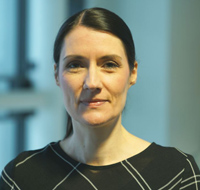Sustainable Development is a core concept linked to Corporate Social Responsibility. This case study describes how Dr Louise Obara makes the connections in a postgraduate business module…
What was the programme or module? The module is called “Corporate Social Responsibility” and involves approximately 30-40 postgraduate business students. The module provides a broad but in-depth analysis of the theory and practice of corporate social responsibility (CSR). This includes an examination of:
- the historical context in which the debates about the responsibility and sustainability of the business sector have emerged;
- the relationship between CSR, sustainability, business ethics and corporate citizenship;
- the main academic theories, concepts and debates in the CSR field;
- the key economic, social and environmental issues facing organisations in general and those in particular sectors and countries;
- how companies and managers address ethical issues and the impact of decisions made on different stakeholders; and the individual, situational and institutional factors that influence and shape ethical decision-making.
“I really enjoyed the guest speakers from other organisations. This gave me a real insight into the different aspects of CSR and real-life examples of people implementing CSR” Student feedback
What happened?
Overview: The module is delivered via a three hour weekly seminar and is purposely designed to be very interactive and participatory. This ‘engaged pedagogic’ approach is vitally important as it reflects the fact that CSR is a contested, dynamic and rapidly-changing field of theory and practice, and thus requires much debate, discussion and analysis. The module addresses both the academic literature on CSR and explores its application and managerial impact through the use of case studies and contemporary examples of specific firms, industries and issues..
Context: In light of high-profile corporate scandals and misdemeanours, this module came about as a way to address the criticisms that Business Schools are not doing enough to address sustainable development, responsibility and ethics in the curriculum.
Description: The course encourages students to identify and consider the economic, social and environmental impacts of business activities. They are also encouraged to think more broadly about the purpose of business vis-à-vis society (e.g. is it simply to increase shareholder value or do companies have a responsibility to make a positive contribution towards the well-being of society?).
Evaluation: The use of guest speakers from the business sector has been particularly successful and students have found this an especially useful way to gain an insight into how companies have addressed sustainability issues and challenges in practice. Also well-received has been the incorporation of the lecturer’s research to illuminate key CSR ideas and concepts. Students have also enjoyed applying their knowledge of CSR and ethical theories to discuss and tackle real-life business cases.
Next Steps: The postgraduate CSR module has been running for a number of years and given its importance and positive reception by students, the Business School intends to make this a core component of the undergraduate business curriculum. Thus, from October 2018, two dedicated modules (one core and one elective) on sustainability, CSR and business ethics will run for Business and Management students.
Which SDGs link to this subject?
The module adopts quite a broad, macro-level analysis of the role and contribution of businesses towards sustainability and thus relates to all of the sustainable development goals. However, the course touches on certain SDGs more directly such as #1 (no poverty), #3 (good health and well-being), #7 (affordable and clean energy), #8 (decent work and economic growth), #10 (reduced inequalities), #12 (responsible consumption and production), and #13 (climate action).
Why are the SDGs important to this subject?
The SDGs are a useful way to make sense of, and break down, what we mean by ‘sustainability’ or sustainable development’ (which people can find a vague and confusing term). They also represent the most pressing issues and challenges facing society and, in relation to the CSR module, they help students reflect on the role that corporations can and should play towards addressing these issues. They also help to explore the impacts of business activities in different sectors and/or countries (e.g. certain goals are more salient and relevant for companies operating in particular industries and/or countries).
“The case studies were amazing; they gave insight and depth on the lectures which really helped me to understand the concepts and theories in practice” Student feedback
What went well?
As already mentioned, the use of guest speakers and inquiry-based methods has worked well, encouraging students to engage with CSR at a much deeper level (by applying concepts and theories to business cases and examples).
Given that the module was designed to be very interactive and participatory, it was important that students felt able to discuss difficult and complex ethical issues in a safe and supported environment. Therefore, the module team stressed at the beginning of the module (and before each group activity) that all comments are welcome and valued. Equally important is to set tasks and activities that increase in difficulty and complexity, thus allowing students to become familiar with the course content as well as each other. This approach has worked well and whilst students were at first cautious to express their views for fear of the ‘wrong’ answer or providing a ‘controversial’ view, they gained more confidence as the module progressed which led to some very lively, candid and interesting debates.
Contact:
Dr Louise Obara. VC2020 Lecturer in Business and Management. Faculty of Business and Law. Email: louise.obara@dmu.ac.uk. Telephone number: 0116 257 7407
This post is one of a series of case studies describing teaching and learning activities linked to the SDGs at DMU.


Leave a Reply